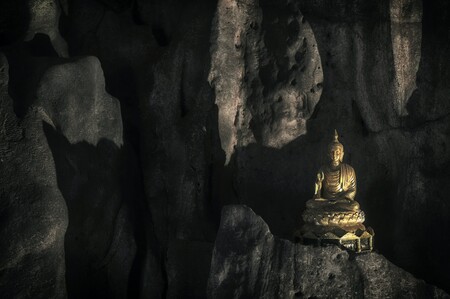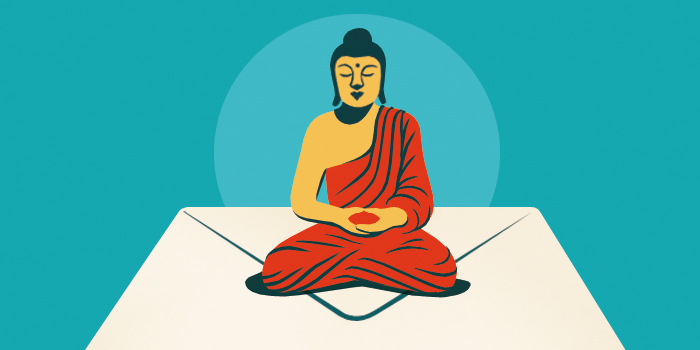What do Buddhists believe happens after death?

In Thailand, a cave’s dark walls reflect the light of a gold Buddha statue. | Source: Unsplash
Most Buddhists believe that death marks the end of this life and the passage into the next. It is just one spoke among infinite spokes in samsara, the cycle of birth, death, and rebirth. According to the Buddha, beings go through countless births and deaths until they gain enlightenment.
We are reborn, according to Buddhist scripture, because of the same kind of clinging and desire that causes us to suffer. The engine of the ego is so powerful that even when the body dies, the mind continues its clinging and searching. In this way, according to Buddhism, it builds a bridge to another body and takes birth again.
The Buddha taught that the where, when, and how of rebirth is entirely determined by our accumulated karma. That is, our actions in this and previous lives shape the outcome for the next life. Even at the point of death and thereafter, we can make choices that will have a positive or negative effect on our next life. The attitude of the mind at death is very important, Buddhists believe. The less fear and aversion we experience at death, and the more focus, calm, and equanimity we have, the more likely we will be reborn in good circumstances. Which is why preparing the mind for death through meditation is a core element of Buddhist practice.
Ideas about the details of what happens at death—for instance, what beings experience between death and the next birth—vary from tradition to tradition. Many Buddhist traditions teach that sending goodwill or chanting certain scriptures or prayers at the time of and following death can help the deceased on their journey to the next life. Buddhist scriptures also identify various heaven- and hell-like realms—sometimes considered to be states created by the mind—where we may take rebirth. Secular Western Buddhists, however, do not believe in rebirth.

Tricycle is more than a magazine
Gain access to the best in sprititual film, our growing collection of e-books, and monthly talks, plus our 25-year archive
Subscribe now